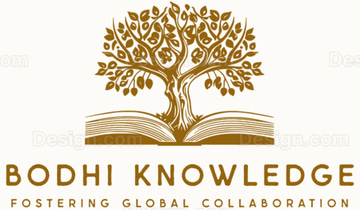At Bodhi Knowledge, we believe that effective leadership is crucial for navigating change and building a sustainable future. This requires not only vision but also the ability to foster organizational alignment and agility. My experience at CBRE, the world's largest commercial real estate firm, during a period of significant market disruption, highlights the importance of these principles.
Imagine your organization as a large ship. Is it smoothly sailing towards its destination, or is it struggling to change course, perhaps even starting to sink? Or perhaps it’s more like a school of fish, all swimming in the same direction, or a cluster of fish circling aimlessly. These analogies capture the essence of organizational alignment and agility – the ability to move as one towards a common goal and adapt quickly to changing circumstances.
During my time at CBRE, from 2017 to 2021, I witnessed firsthand the challenges of navigating a rapidly evolving market, particularly during the pandemic. As Vice President, leading various digital product and technology initiatives, I was responsible for driving a mission-critical digital transformation of a $14 billion business..
One of the key challenges was fostering organizational alignment. We needed to move away from a project-centric approach to a product-led organization, where teams were focused on delivering specific business outcomes. This required a shift in mindset, processes, and technology. We consolidated over 100 products into 20 core offerings, creating a common platform with user-centric experiences. This streamlining was essential for focusing our efforts and resources.
To achieve this alignment, I emphasized two key principles: First Principles Thinking and Second-Order Thinking. First Principles Thinking encourages us to separate facts from assumptions, ensuring that our decisions are based on solid foundations. Second-Order Thinking requires us to consider the ripple effects of our decisions, anticipating potential consequences and avoiding unintended pitfalls. These frameworks helped us to make more informed and strategic choices.
Another critical factor was agility. The pandemic dramatically altered the commercial real estate landscape, requiring us to adapt quickly to new client needs and market conditions. We leveraged data analytics, AI, and robotic process automation to drive efficiencies and cost savings. It underscores the importance of being able to pivot and innovate in the face of adversity.
My experience at CBRE reinforced the importance of strong leadership, clear communication, and a shared vision. By fostering organizational alignment and agility, we were able to not only weather the storm but also emerge stronger and more resilient. This experience aligns with Bodhi's mission of creating a sustainable future, demonstrating how effective leadership and strategic use of technology can empower organizations to thrive in a constantly changing world. It demonstrates that by embracing change, prioritizing user needs, and leveraging technology strategically, organizations can not only survive but thrive, even in the most challenging environments.


